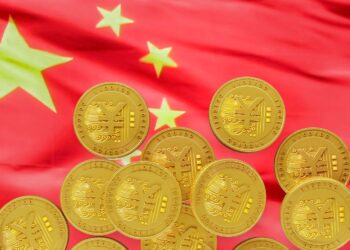Undoubtedly, there is a global momentum towards digitizing currency, and at the forefront of this financial revolution stands China’s Digital Yuan. In the following article, we will embark on a thorough journey to demystify the Digital Yuan, offering a detailed understanding of its core definition, its monumental importance, and the extensive ramifications it carries for the future of monetary systems. For invaluable insights into this continuously evolving terrain, look to https://yuan-international.io/.
The Birth of the Digital Yuan
Historical context: China’s journey from cash to digital payments
China has come a long way from a cash-based society to a digital payment powerhouse. Over the past decade, the country has witnessed an explosive rise in mobile payment platforms like Alipay and WeChat Pay. This transition laid the foundation for the development of the Digital Yuan.
The motivations behind China’s push for a digital currency
One of the key driving forces behind China’s Digital Yuan is the desire to reduce its dependence on the US dollar in international trade. Additionally, the Chinese government aims to combat illicit financial activities, such as money laundering and tax evasion, through better surveillance capabilities provided by a digital currency.
Key milestones in the development of the Digital Yuan
China initiated the development of its central bank digital currency (CBDC) in 2014. Over the years, it has conducted several pilot programs in various cities, including Shenzhen and Beijing. These tests allowed for iterative improvements, fine-tuning the Digital Yuan’s features.
Understanding the Digital Yuan
How does the Digital Yuan work?
The Digital Yuan operates on a blockchain-like infrastructure and is issued and regulated by the People’s Bank of China. Users can access it through authorized digital wallets and perform transactions seamlessly, just like using physical cash.
Technical aspects of the digital currency
While it is not a traditional cryptocurrency, the Digital Yuan shares some similarities with digital assets like Bitcoin. It offers a degree of anonymity to users while maintaining regulatory control through the central bank’s oversight.
Comparison between the Digital Yuan and traditional cryptocurrencies
Unlike cryptocurrencies like Bitcoin, the Digital Yuan is centralized, fully backed by the government, and less volatile in value.

It is designed to be a stable digital alternative to physical currency.
Benefits and Challenges
Advantages of the Digital Yuan for the Chinese economy and society
The Digital Yuan offers several benefits, including increased financial inclusion, reduced costs of printing and managing physical currency, and greater efficiency in tracking financial transactions for regulatory purposes.
Potential drawbacks and concerns associated with the Digital Yuan
Critics worry about issues related to privacy and surveillance. The centralized nature of the Digital Yuan could grant the Chinese government unprecedented access to its citizens’ financial data, raising concerns about personal privacy and government control.
The global implications of China’s digital currency
The global financial landscape is closely watching China’s Digital Yuan project. If it gains widespread adoption, it could challenge the dominance of the US dollar in international trade and potentially shift the balance of power in the global financial system.
Implementation and Adoption
Pilot programs and early adopters of the Digital Yuan
China has been conducting pilot programs in various cities to test the Digital Yuan’s functionality. Early adopters include businesses, government employees, and citizens who have had the opportunity to experiment with the digital currency.
The role of Chinese banks and financial institutions
Chinese banks play a vital role in the issuance and distribution of the Digital Yuan. They have been actively involved in developing the infrastructure required for the currency’s success.
Government initiatives to promote the use of the Digital Yuan
The Chinese government is actively promoting the Digital Yuan through incentives and subsidies to encourage its adoption. This includes offering discounts and cashback rewards to users who transact using the digital currency.
The International Landscape
China’s efforts to internationalize the Digital Yuan
China is actively working on expanding the use of the Digital Yuan beyond its borders. It has begun pilot programs in select countries and is exploring ways to make the currency accessible to international users.
Global response and concerns from other nations
Many countries are closely monitoring China’s Digital Yuan and have expressed concerns about its potential impact on the global financial system, as well as its implications for geopolitical dynamics.
The Digital Yuan’s potential impact on the dominance of the US dollar
If the Digital Yuan gains international acceptance, it could challenge the status of the US dollar as the world’s primary reserve currency.

This shift could have far-reaching consequences for global finance and geopolitics.
Future Possibilities and Implications
Speculations on the future of digital currencies and their role in the global financial system
The rise of digital currencies, including the Digital Yuan, could reshape the way we think about money and finance. It may pave the way for more inclusive and efficient financial systems globally.
The potential for cross-border trade and remittances with the Digital Yuan
The Digital Yuan’s internationalization could simplify cross-border trade and remittances, reducing the reliance on existing financial intermediaries and currency exchange services.
The influence of China’s digital currency on the broader fintech industry
The development of the Digital Yuan has spurred innovation in the fintech sector, with companies exploring ways to integrate it into their services, potentially leading to new opportunities and challenges.
Conclusion
In conclusion, China’s Digital Yuan is a significant milestone in the evolution of currency. Its impact on the global financial landscape is still unfolding, but it has the potential to reshape international trade, finance, and geopolitics. As the world watches China’s digital currency experiment, the future of money appears more digital and interconnected than ever before.
















